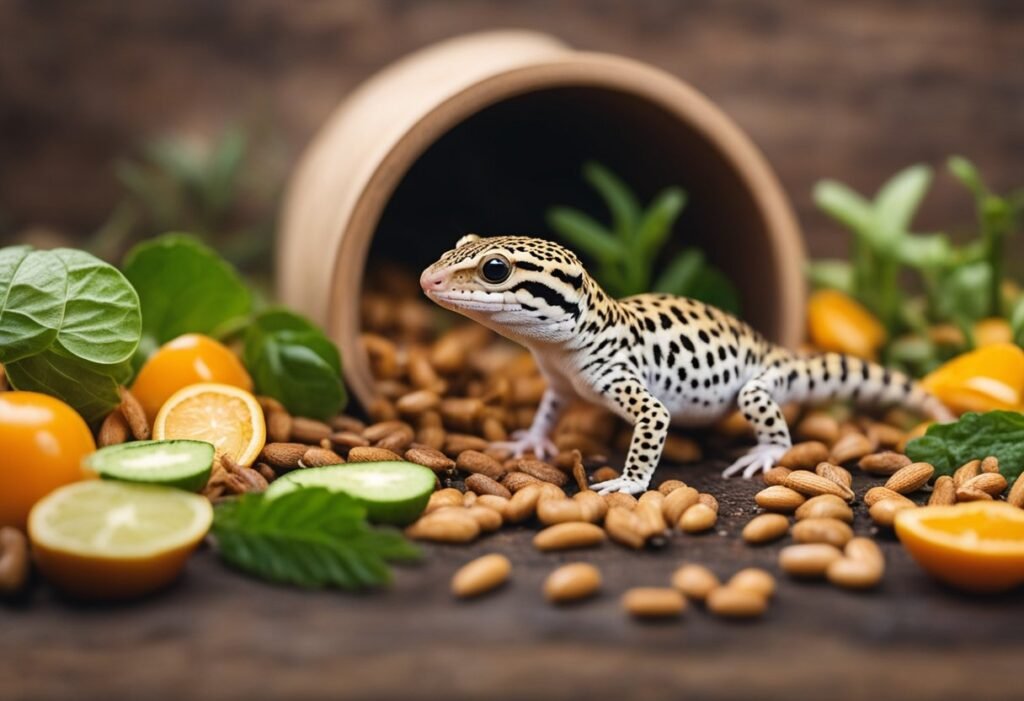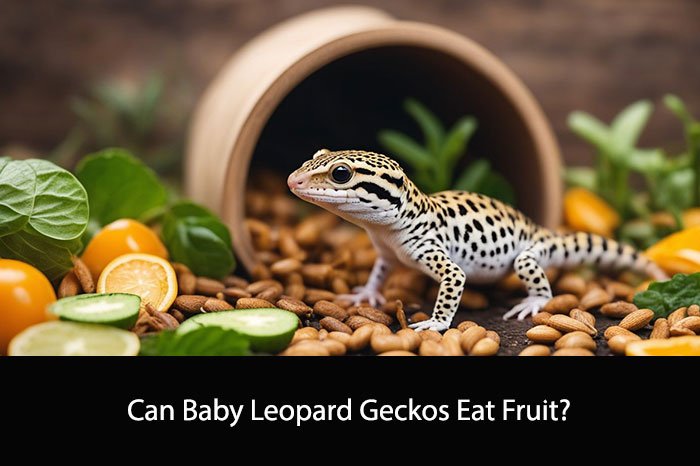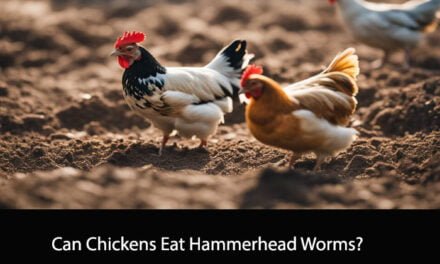Leopard geckos are fascinating creatures that make great pets. As with any pet, it is important to understand what they can and cannot eat to ensure their health and wellbeing. One question that often arises is whether baby leopard geckos can eat fruit. In this article, we will explore this topic and provide you with the information you need to make informed decisions about your gecko’s diet.
First, it is important to note that leopard geckos are primarily insectivores. Their natural diet consists of insects such as crickets, mealworms, and waxworms. However, some owners may wonder if it is safe to offer their gecko fruits as a treat or supplement to their diet. While fruit may seem like a healthy option, it is important to consider the nutritional needs of your gecko and whether fruit provides the necessary nutrients.
In the following paragraphs, we will explore the nutritional needs of baby leopard geckos and the potential risks and benefits of feeding them fruit. We will also provide recommendations for a balanced and healthy diet for your gecko. By the end of this article, you will have a better understanding of whether or not baby leopard geckos can eat fruit and how to provide them with a healthy and balanced diet.
Dietary Basics of Baby Leopard Geckos

As responsible pet owners, it is important to understand the dietary needs of our baby leopard geckos. Providing them with a well-balanced diet is crucial for their growth and overall health. In this section, we will discuss the nutritional needs of baby leopard geckos and how often and how much to feed them.
Nutritional Needs
Baby leopard geckos are insectivores, which means their diet should consist mainly of insects. They require a diet high in protein and calcium to support their growth and development. Insects such as crickets, mealworms, and waxworms are great choices for their diet. It is important to gut-load the insects with nutritious foods before feeding them to the baby leopard geckos.
In addition to insects, baby leopard geckos can also eat some fruits and vegetables as treats. However, it is important to note that fruits and vegetables should not make up a significant portion of their diet. Some good choices for treats include mashed bananas, diced apples, and shredded carrots.
It is important to provide baby leopard geckos with a calcium supplement to prevent metabolic bone disease. This can be done by dusting their food with a calcium supplement powder before feeding them.
Feeding Frequency and Amount
Baby leopard geckos should be fed every day or every other day. The amount of food they should be fed depends on their age and size. As a general rule, baby leopard geckos should be fed as much as they can eat in 10-15 minutes. It is important not to overfeed them as this can lead to obesity and other health problems.
In conclusion, providing a well-balanced diet for our baby leopard geckos is crucial for their growth and overall health. By understanding their nutritional needs and feeding them the right amount and frequency, we can ensure they live a long and healthy life.
Fruit and Leopard Geckos

As owners of leopard geckos, we often wonder if we can feed them fruits. While it is true that leopard geckos are omnivores and can eat a variety of foods, including fruits, it is important to understand the potential risks and why insects are preferred.
Potential Risks of Fruits
Fruits are high in sugar and can cause digestive problems in leopard geckos. Excessive intake of fruits can lead to diarrhea, bloating, and even metabolic bone disease. Additionally, some fruits are acidic and can cause irritation to the gecko’s mouth and digestive tract.
It is important to note that not all fruits are harmful to leopard geckos. Some fruits, such as papaya and mango, are high in calcium and can be beneficial when fed in moderation. However, it is always best to consult with a veterinarian or a reptile nutrition expert before introducing any new food to your leopard gecko’s diet.
Why Insects Are Preferred
Insects are the preferred food source for leopard geckos as they are high in protein and low in sugar. Feeding your leopard gecko a diet consisting mainly of insects will ensure that they receive the necessary nutrients to maintain their health and well-being.
Some of the best insects to feed your leopard gecko include crickets, mealworms, and dubia roaches. It is important to ensure that the insects are gut-loaded with a nutritious diet before feeding them to your gecko. This means feeding the insects a diet high in calcium and other essential vitamins and minerals.
In conclusion, while it is possible to feed your leopard gecko fruits, it is important to understand the potential risks and why insects are preferred. By providing your leopard gecko with a diet consisting mainly of insects, you can ensure that they receive the necessary nutrients to maintain their health and well-being.
Safe Foods for Baby Leopard Geckos

As a responsible pet owner, it is important to ensure that your baby leopard gecko is getting all the necessary nutrients for their growth and development. While insects should make up the majority of their diet, it is natural to wonder if baby leopard geckos can eat fruit.
After conducting research and consulting with experts, we have found that while fruit can be a tasty treat for adult leopard geckos, it is not recommended for baby leopard geckos.
Recommended Insect Diet
A diet consisting of appropriately sized insects is the best way to ensure that your baby leopard gecko is getting the nutrients they need. Some recommended insects include:
- Crickets
- Mealworms
- Dubia roaches
- Waxworms (as an occasional treat)
It is important to note that insects should be gut-loaded with a nutritious diet before being fed to your baby leopard gecko. This means feeding the insects a diet of fruits and vegetables before feeding them to your gecko.
Supplements and Vitamins
In addition to a proper insect diet, it is recommended to supplement your baby leopard gecko’s diet with calcium and multivitamins. Calcium is important for strong bones and overall health, while multivitamins can help fill any nutritional gaps in their diet.
When providing supplements, it is important to follow the instructions carefully and not over-supplement. Over-supplementing can lead to health issues for your baby leopard gecko.
In conclusion, while fruit can be a tasty treat for adult leopard geckos, it is not recommended for baby leopard geckos. A diet consisting of appropriately sized insects and supplemented with calcium and multivitamins is the best way to ensure that your baby leopard gecko is getting all the necessary nutrients for their growth and development.
Feeding Techniques and Tips
Live Prey Feeding
When it comes to feeding baby leopard geckos, live prey is the best option. They require a diet that is high in protein and live insects provide them with the necessary nutrients. Some good options for live prey include crickets, mealworms, and waxworms.
It is important to ensure that the live prey is properly gut-loaded before feeding it to your baby leopard gecko. This means feeding the insects a nutritious diet for at least 24 hours before feeding them to your gecko. This will ensure that your gecko is receiving the necessary nutrients from its food.
Food Size and Safety
When feeding baby leopard geckos, it is important to ensure that the food is the appropriate size. The food should be no larger than the space between your gecko’s eyes. This will help prevent choking and other digestive issues.
Additionally, it is important to ensure that the food is safe for your gecko to eat. Avoid feeding your gecko insects that have been caught in the wild as they may contain harmful pesticides or other toxins. Instead, purchase insects from a reputable source or raise them yourself.
In conclusion, feeding baby leopard geckos can be a simple and enjoyable task as long as you follow these feeding techniques and tips. By providing your gecko with a diet that is high in protein and ensuring that the food is the appropriate size and safe to eat, you can help ensure that your gecko grows up healthy and strong.
Health Considerations
When it comes to feeding baby leopard geckos, it’s important to consider their health. While it may be tempting to offer them a variety of fruits, there are some health considerations to keep in mind.
Signs of Improper Diet
If your baby leopard gecko is not getting the proper nutrients, they may show signs of an improper diet. Some of these signs include:
- Weight loss
- Lethargy
- Lack of appetite
- Weakness
If you notice any of these signs, it’s important to reassess their diet and make sure they are getting the nutrients they need.
Common Digestive Issues
Feeding baby leopard geckos fruit can also lead to common digestive issues. Some fruits can be high in sugar, which can cause diarrhea or other digestive problems. In addition, fruits with high water content can also cause diarrhea and dehydration.
To avoid these issues, it’s important to offer baby leopard geckos a balanced diet that includes a variety of insects and a small amount of fruits and vegetables. It’s also important to make sure they have access to fresh water at all times.
Overall, while baby leopard geckos can eat fruit in moderation, it’s important to consider their health and offer them a balanced diet to ensure they are getting the nutrients they need to thrive.
Habitat and Environment Impact on Diet

The natural habitat of leopard geckos is the rocky and arid regions of Afghanistan, Pakistan, and India. In the wild, their diet consists mainly of insects such as crickets, mealworms, and waxworms. However, their diet in captivity can vary based on their environment.
The temperature and humidity of their environment can affect their appetite and digestion. If their environment is too cold, they may not be able to digest their food properly, and if it is too hot, they may become dehydrated. Therefore, it is essential to maintain the temperature and humidity levels within the recommended range.
The availability of food can also impact their diet. In some regions, live insects may not be readily available, and in such cases, it is important to provide a variety of commercially available feeders. It is important to note that not all insects are suitable for leopard geckos, and some may even be toxic to them.
In conclusion, the habitat and environment of leopard geckos play a crucial role in their diet. It is important to provide a suitable environment and a varied diet to ensure their health and wellbeing.
Frequently Asked Questions
What alternative foods can be offered to leopard geckos besides insects?
While insects are the primary food source for leopard geckos, there are some alternative foods that can be offered. These include mealworms, waxworms, and superworms. However, it is important to note that these should only be offered as occasional treats and not as a replacement for their main diet of insects.
Is it safe for leopard geckos to consume ants?
No, it is not recommended to feed ants to leopard geckos. Ants can release formic acid, which can be harmful to leopard geckos and cause digestive issues.
Why should or shouldn’t lettuce be included in a leopard gecko’s diet?
Lettuce should not be included in a leopard gecko’s diet as it has little to no nutritional value and can cause digestive issues. Instead, offer leafy greens such as kale, collard greens, and dandelion greens as occasional treats.
Are hornworms a suitable food choice for leopard geckos?
Hornworms can be a suitable food choice for leopard geckos as they are high in moisture and provide a good source of hydration. However, they should only be offered as occasional treats and not as a replacement for their main diet of insects.
What is the ideal feeding schedule for leopard geckos at different ages?
For baby leopard geckos, they should be fed daily with appropriately sized insects. As they grow older, the frequency of feedings can be reduced to every other day or every few days. Adult leopard geckos can be fed every two to three days.
What are the dietary risks of feeding leopard geckos with bananas or other fruits?
Leopard geckos are primarily insectivores and their digestive systems are not designed to process fruits. Feeding them with fruits such as bananas can cause digestive issues and potentially lead to health problems. It is best to stick to a diet of insects and occasional treats of leafy greens.





